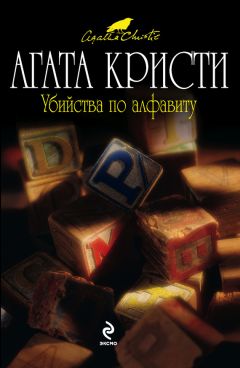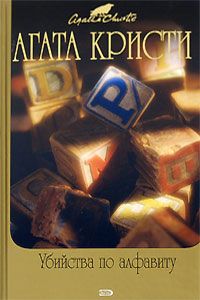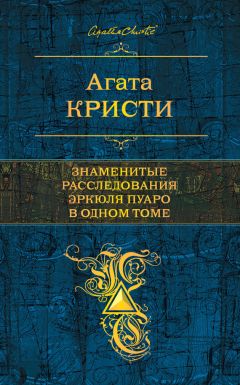Agatha Christie - Английский язык с Агатой Кристи. Убийства по алфавиту
requisite [ˈrekwɪzɪt], hulking [ˈhʌlkɪŋ], diametrically [ˌdaɪǝˈmetrɪkǝlɪ]
"There is at least a possibility that the murderer lives in or near Andover. That is a possible answer to our question: 'Why Andover?' Well , here were two men known to have been in the shop at the requisite time of day. Either of them might be the murderer. And there is nothing as yet to show that one or other of them is not the murderer."
"That great hulking brute, Riddell, perhaps," I admitted.
"Oh, I am inclined to acquit Riddell off-hand. He was nervous, blustering, obviously uneasy —"
"But surely that just shows —"
"A nature diametrically opposed to that which penned the A.B.C. letter. Conceit and self-confidence are the characteristics that we must look for."
"Someone who throws his weight about (кто-то, кто любит показать себя: «кто размахивает своим весом»)?"
"Possibly (возможно). But some people (но некоторые люди), under a nervous and self-effacing manner (под нервной и скромной манерой /держаться/; self-effacing — скромный, держащийся в тени; to efface — стирать, вычеркивать), conceal a great deal of vanity and self-satisfaction (скрывают изрядную долю тщеславия и самодовольства)."
"You don't think (вы не думаете) that little Mr. Partridge (что тот маленький мистер Партридж) —?"
"He is more the type (он больше /соответствует/ этому типу). One cannot say more than that (нельзя сказать больше этого). He acts as the writer of the letter would act (он ведет себя так, как автор письма повел бы /себя/) — goes at once to the police (идет сразу же в полицию) — pushes himself to the fore (продвигает себя вперед) — enjoys his position (и наслаждается своим положением)."
weight [weɪt], conceal [kǝnˈsi:l], vanity [ˈvænɪtɪ]
"Someone who throws his weight about?"
"Possibly. But some people, under a nervous and self-effacing manner, conceal a great deal of vanity and self-satisfaction."
"You don't think that little Mr. Partridge — ?"
"He is more le type. One cannot say more than that. He acts as the writer of the letter would act — goes at once to the police — pushes himself to the fore — enjoys his position."
"Do you really think (вы действительно думаете) —?"
"No, Hastings (нет, Гастингс). Personally I believe (лично я думаю) that the murderer came from outside Andover (что убийца не из Эндовера: «появился из наружной стороны Эндовера»), but we must neglect no avenue of research (но мы /не/ должны пренебрегать ни одним путем расследования: «исследования»; avenue — дорога; путь, средство). And although I say 'he' all the time (и хотя, я все время говорю «он»), we must not exclude the possibility of a woman being concerned (мы не должны исключать возможность /того, что может/ быть замешана женщина)."
"Surely not (конечно же нет = не может такого быть)!"
"The method of attack is that of a man (способ атаки больше подходит мужчине: «это тот мужчины»), I agree (я согласен). But anonymous letters are written by women rather than by men (но анонимные письма скорее пишутся женщинами, чем мужчинами). We must bear that in mind (мы должны принять это во внимание: «мы должны нести это в уме»)."
avenue [ˈævǝnju:], exclude [ɪksˈklu:d], research [rɪˈsǝ:tʃ]
"Do you really think —?"
"No, Hastings. Personally I believe that the murderer came from outside Andover, but we must neglect no avenue of research. And although I say 'he' all the time, we must not exclude the possibility of a woman being concerned."
"Surely not!"
"The method of attack is that of a man, I agree. But anonymous letters are written by women rather than by men. We must bear that in mind."
I was silent for a few minutes (я молчал несколько минут: «был молчалив несколько минут»), then I said (затем я сказал): "What do we do next (что мы делаем дальше)?"
"My energetic Hastings (мой энергичный Гастингс)," Poirot said and smiled at me (и улыбнулся мне).
"No (нет), but what do we do (но что мы делаем)?"
"Nothing (ничего)."
"Nothing (ничего)?" My disappointment rang out clearly (мое разочарование прозвучало /совершенно/ отчетливо; to ring out — звучать; раздаваться).
"Am I the magician (/разве/ я волшебник; magic — волшебство, магия)? The sorcerer (маг; sorcery — магия, колдовство)? What would you have me do (что бы вы заставили меня делать)?"
Turning the matter over in my mind (провернув это дело в уме) I found it difficult to give answer (я нашел сложным дать ответ). Nevertheless (тем не менее) I felt convinced (я чувствовал /себя/ убежденным) that something ought to be done (что что-то должно быть сделано) and that we should not allow the grass to grow under our feet (и что нам не следует терять времени даром: «и что нам не следует позволять траве расти под нашими ногами»; foot — ступня; нога).
magician [mǝˈʤɪʃ(ǝ)ŋ], sorcerer [ˈsɔ:s(ǝ)rǝ], convince [kǝnˈvɪns]
I was silent for a few minutes, then I said: "What do we do next?"
"My energetic Hastings," Poirot said and smiled at me.
"No, but what do we do?"
"Nothing."
"Nothing?" My disappointment rang out clearly.
"Am I the magician? The sorcerer? What would you have me do?"
Turning the matter over in my mind I found it difficult to give answer. Nevertheless I felt convinced that something ought to be done and that we should not allow the grass to grow under our feet.
I said: "There is the A.B.C. (есть /железнодорожный справочник/ «Эй-би-си») — and the notepaper (и писчая бумага) and envelope (и конверт)" — —
"Naturally everything is being done in that line (естественно, все делается в этом направлении: «в этой линии»). The police have all the means at their disposal for that kind of inquiry (у полиции есть все средства в распоряжении для этого рода расследования; to have at one's disposal — иметь в распоряжении). If anything is to be discovered on those lines (если что-то можно раскрыть по этим направлениям) have no fear (не бойтесь) but that they will discover it (что они неминуемо раскроют это; сравните: there is no doubt but that it must be done — нет никакого сомнения, что это должно быть сделано)."
With that I was forced to rest content (этим мне пришлось: «меня заставили» удовольствоваться: «остаться довольным»).
In the days that followed (в следующие дни: «в дни, /которые/ последовали») I found Poirot curiously disinclined to discuss the case (я обнаружил что Пуаро странно был не склонен обсуждать этот случай; to incline — наклонять; склонять, быть склонным). When I tried to reopen the subject (когда я пытался возобновить предмет /разговора/; to reopen — открыть снова; возобновить) he waved it aside with an impatient hand (он нетерпеливо отмахивался рукой: «он отмахивал это в сторону нетерпеливой рукой»; patient — терпеливый).
content [kǝnˈtent], disincline [ˈdɪsɪnkˈlaɪn], impatient [ɪmˈpeɪʃ(ǝ)nt]
I said: "There is the A.B.C. — and the notepaper and envelope — "
"Naturally everything is being done in that line. The police have all the means at their disposal for that kind of inquiry. If anything is to be discovered on those lines have no fear but that they will discover it."
With that I was forced to rest content.
In the days that followed I found Poirot curiously disinclined to discuss the case. When I tried to reopen the subject he waved it aside with an impatient hand.
In my own mind (мысленно: «в моем собственном уме») I was afraid (я боялся) that I fathomed his motive (что я раскрыл его мотив; to fathom — понимать; разузнавать; выяснять). Over the murder of Mrs. Ascher (по убийству миссис Эшер), Poirot had sustained a defeat (Пуаро потерпел поражение; to sustain — поддерживать; претерпевать; нести). A.B.C. had challenged him (Эй-би-си бросил ему вызов; to challenge — призывать к ответу; бросать вызов) — and A.B.C. had won (и Эй-би-си выиграл; to win — выигрывать, побеждать). My friend (мой друг), accustomed to an unbroken line of successes (привычный к непрерывной череде успехов; to break — ломать), was sensitive to his failure (был чувствителен к своему провалу) — so much (столь сильно) so that he could not even endure discussion of the subject (что он не мог даже вынести обсуждения этого предмета; to endure — подвергаться; длиться; терпеть).




